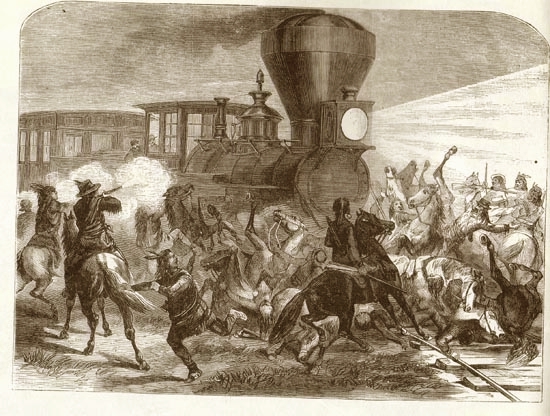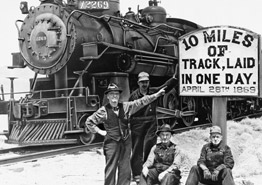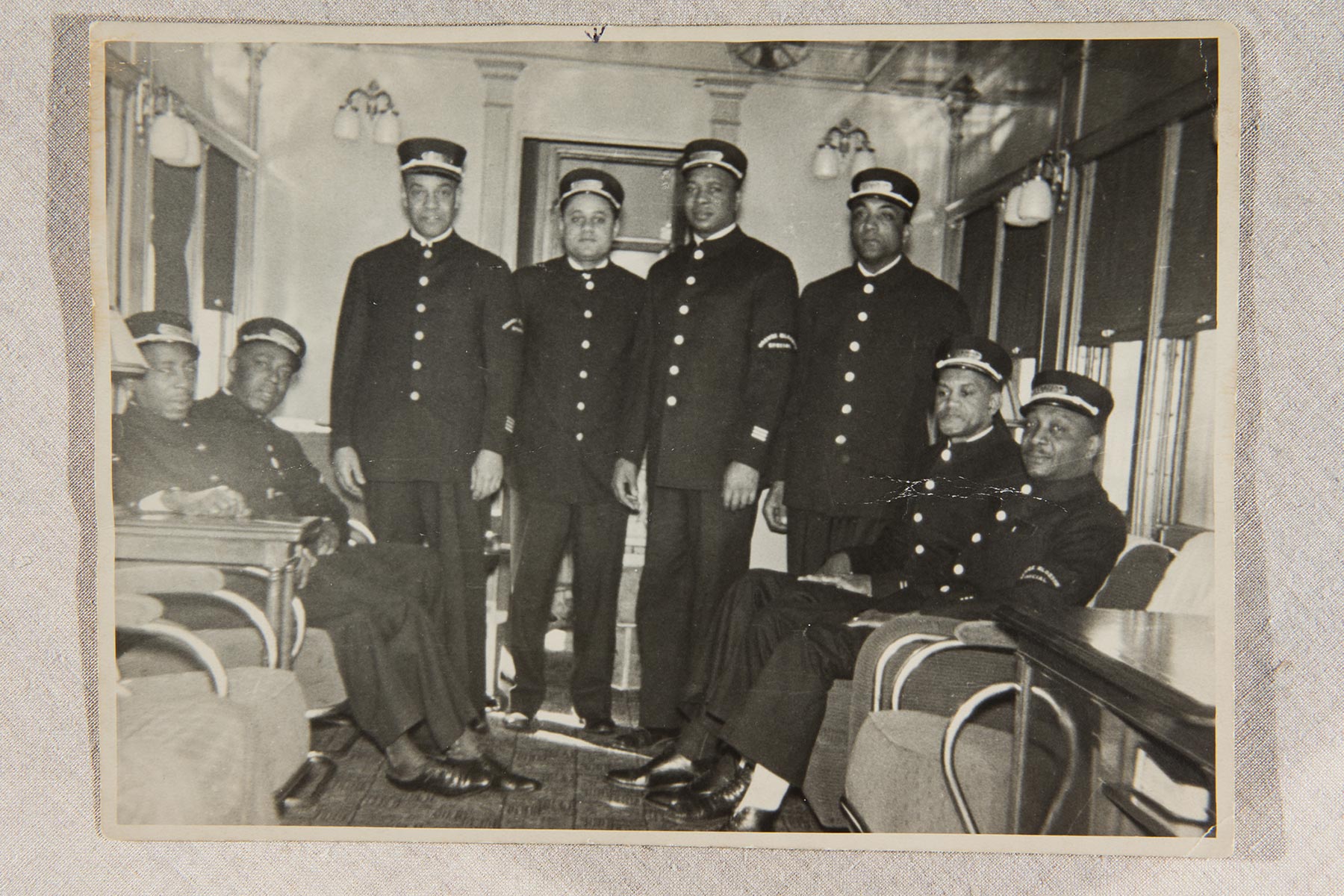
Unfortunately, there is no event in Boston because Amtrak has decided to replace National Train Day with Amtrak Train Days. The date of Amtrak Train Day at South Station has yet to be announced.
This holiday is important for two reasons:
(1) It is the month of Amtrak's birthday (May 1971).
(2) It marks the anniversary of the completion of the First Transcontinental Railroad.
Trains and railroads in the United States have affected all of us, and here is how:
Trains in the United States travel through the original homeland of Native Americans. This country was home to Native Americans before Europeans came and decided to take their land away. Native Americans moved to other parts of the country, before the Europeans decided to take more land. The Native Americans tried to defend their territory, but the White men had guns and the Native Americans were not able to successfully defend against the railroads. Many railroad tracks are laid along the original land of Native Americans.
This is why trains are important to Native Americans.
This is why trains are important to European Americans.

Why does the back of the Utah quarter depict two steam locomotives and a spike in the middle? It is to commemorate the First Transcontinental Railroad, which was completed on May 10, 1869.
One group of people that was hired to speed up the First Transcontinental Railroad were Chinese people. People from China arrived to take their chances during the Gold Rush. After that, the next big thing was the construction of railroads. Chinese people contributed the majority of the labor, but were not recognized for any of their hard work. These laborers were expected to work and return to China when the job was complete. They were discriminated and did the most dangerous work such as blasting on top of mountains. When the project was finished, none of the Chinese laborers were invited to the completion ceremony.
Golden Spike Ceremony - May 10, 1869
2014 reenactment of the photograph with all Asian people
It took decades for the United States to slowly acknowledge the Chinese people's great contribution to the First Transcontinental Railroad.
Last year, in 2014, the United States finally recognized to a greater extent the positive impact that the Chinese brought with building the First Transcontinental Railroad.
This is why trains are important to Asian Americans, especially Chinese Americans.
After slavery ended and around the time of the Great Migration, many African Americans moved to cities such as Boston and New York City. There were not many job opportunities for Black people. George Pullman of the Pullman Palace Car Company hired a lot of Black people to work as porters on his railroad coaches. This was one of the best jobs that a Black man could get at the time. But there was no union. Black Pullman Porters were discriminated and paid low wages. Many passengers called the Black Pullman Porters as "George"; this was racist because it implied that George Pullman owned the Black Pullman Porters.
The Pullman Porters sought out A. Philip Randolph to help them establish a union. And in 1925, the Brotherhood of Sleeping Car Porters was formed. It took many years of protesting, but eventually the Pullman Company gave into the better working conditions and higher wages that the Pullman Porters sought. Eventually, the railroad started to decline and African Americans were slowly able to find other job opportunities, which ended an era of Black Pullman Porters.
In Boston, Pullman Porters were based out of Back Bay Station and lived in the South End neighborhood.
The waiting room at Back Bay Station is dedicated in memory of A. Philip Randolph. There is also a statue of him and many history boards about Pullman Porters on the walls.
This is why trains are important to African Americans.
Regardless of how trains and railroad affect each ethnic group individually, trains and railroads unites all of us together. The railroad is what unites the United States together.
There were many railroad companies in Boston before the arrival of Amtrak and the Massachusetts Bay Transportation Authority (MBTA) Commuter Rail. These included the Boston and Albany Railroad; the Boston and Maine Railroad; the New York, New Haven and Hartford Railroad; and the Old Colony Railroad. As years passed, the bigger railroad companies acquired the smaller railroad companies. But they were all doomed to bankruptcy in the long run around the 1940's and 1950's. It was a similar story for railroad companies all over the United States. With the introduction of automobiles and highways, a lot of people were no longer riding on trains. As a result, many railroad companies closed and many lines were abandoned. But with the rise of automobiles, there was also an increase in traffic and health concerns. Railroads slowly started to re-emerge, and the United States Congress founded Amtrak in May 1971. One important corridor that was reopened and enhanced for high speed trains was the Northeast Corridor. Acela Express was introduced at the turn of the new millennium. A new era of train travel had arrived!
In the Greater Boston area, many lines that were previously owned by former railroad companies were re-opened under the MBTA's new Commuter Rail System in 1973.
We now see how trains have affected us all and why it is important... because it unites this country together. Although we have alternative means of transportation, such as automobiles and airplanes, trains will forever play a vital part in the United States' past, present and future. Happy Train Day!

















